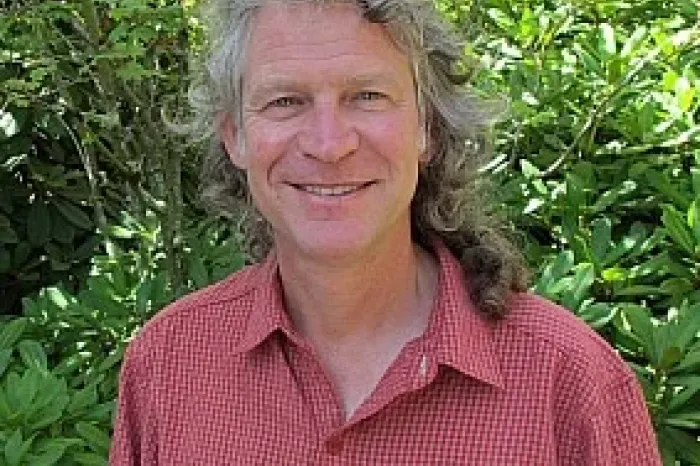
One of the leading experts on on the mutual relationships among physics, mathematics, and the visual arts, Dr. Richard Taylor, has accepted the invitation to serve as the 2024 Krause Science Lecturer at Marietta College. Dr. Taylor, a distinguished physicist from the University of Oregon, focuses on a comprehensive exploration of how fractal patterns influence our understanding of nature and aesthetics. His innovative work has bridged the gap between scientific inquiry and artistic expression.
The lecture, “Fractal Fluency: The Art and Science of Nature’s Beauty,” will be held on September 4, 2024, at 7:00 p.m. in the McDonough Auditorium, with seating opening at 6:30 p.m. As always, the event is free and open to the public.
A renowned physicist with a unique interdisciplinary focus that integrates physics, fine arts and neuroscience, Taylor will explore the captivating world of fractals in his lecture. The talk’s abstract reveals the profound and far-reaching implications of fractal patterns in both nature and art.
“Dramatically referred to as the ‘fingerprint of life’, fractal patterns are prevalent in nature —ranging from clouds, trees, and mountains, through to our brains, blood vessels, and lungs. Perhaps the most staggering factor in the story of fractals is that artists have been creating these patterns long before scientists started to study them. Examples of fractal art include Leonardo da Vinci’s drawings of turbulent rivers, Jackson Pollock’s epic organic paintings, and M.C. Escher’s mind-bending prints,” Taylor said.
“The growing impact of fractals on cultures around the world and their prevalence in nature raises a simple and yet crucial question: Does exposure to fractal patterns have a positive impact on the observer? Collaborating with neuroscientists, I am investigating fractal fluency—the idea that, through exposure to nature’s fractals, our eyes have evolved over millions of years to process these patterns with relative ease, triggering an aesthetic experience accompanied by reductions in stress and mental fatigue.”
Taylor’s presentation will include many visual elements and a discussion about his fractal fluency experiments and collaborations with artists, designers and architects installing fractals such as solar panels, lights, window shades, ceiling tiles and carpets throughout the U.S.
The Krause Lecture Series began in 2002 and is supported by gifts from the late Dr. Richard M. Krause ’47, the son of E.L. and Jennie Mae Krause. Dr. Krause served on the College’s Board of Trustees for 22 years and was a renowned physician, microbiologist, immunologist and former Director of the National Institute of Allergy and Infectious Diseases.
Located in Marietta, Ohio, at the confluence of the Muskingum and Ohio rivers, Marietta College is a four-year liberal arts college. Tracing its roots to the Muskingum Academy, founded in 1797, the College was officially chartered in 1835. Today, Marietta College serves a body of 1,200 full-time students. The College offers over 50 majors and is consistently ranked among the top regional comprehensive colleges by U.S. News & World Report and The Princeton Review. Marietta was selected seventh in the nation according to the Brookings Institution's rankings of colleges by their highest value added, regardless of major.